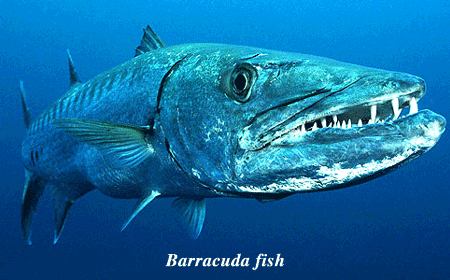BELIZE CITY, Wed. Sept. 26, 2018– Today, the Ministry of Health issued a press release warning against the consumption of fish which might contain ciguatera, a poison found in some fish. According to the release, ten persons have already been affected by the poison after buying barracuda fish from an unnamed vendor at the Vernon Street Fish Market.
Ciguatera is found in predatory fish, and aside from barracuda, it can also be found in coral trout, red snapper, parrot fish, grouper, Spanish mackerel, red emperor, wrasse, reef cod, sturgeon fish, trevally and moray eel. The release says that the toxin does not affect the taste or smell of the fish, and neither freezing nor cooking the fish will get rid of the poison.
The specific toxins in ciguatera are ciguatoxin and maitotoxin, and according to Wikipedia, it is produced by a small marine organism called Gambierdiscus toxicus, which grows near and on coral reefs in tropical and subtropical waters. This organism is eaten by herbivorous fish, which are then eaten by larger predatory fish. The toxins become more concentrated as they move up the food chain.
The release outlines the symptoms as “tingling and numbness in fingers and toes, around lips, tongue, mouth and throat, nausea, vomiting, diarrhea and or abdominal cramps, joint pains, headache and difficulty breathing. The gastrointestinal or stomach symptoms normally appear within 24 hours of exposure and those of the nervous system can appear one to two days later.”
It continues by saying that symptoms disappear after a few days but complete recovery happens after a few weeks.
In order to prevent ciguatera poisoning, persons should avoid eating the head and fish eggs (roe), as well as the liver and other organs of the fish, since they contain the highest levels of the toxin. They are advised to eat other types of fish, and to avoid eating fish that weigh more than 11 pounds, since ciguatera poisoning occurs more often when larger fish are eaten.
Persons who experience symptoms are advised to report it to the local public health officer so that action can be taken to help prevent more people from being poisoned.
There have been many ideas being circulated on how to determine if a fish is carrying the ciguatera toxin. Some people believe that if you put a coin or a silver spoon in the pot with the fish while it is being cooked, and it comes out tarnished, the fish carries the poison.
Some also say if you put the fish in an open area and a cat or ants won’t eat it, or if flies won’t land on it, it means it is poisoned. Discoloration of the flesh and a peppery taste are also things people say indicate that there is poison in the fish.
However, there is no proof that these suggestions work.


